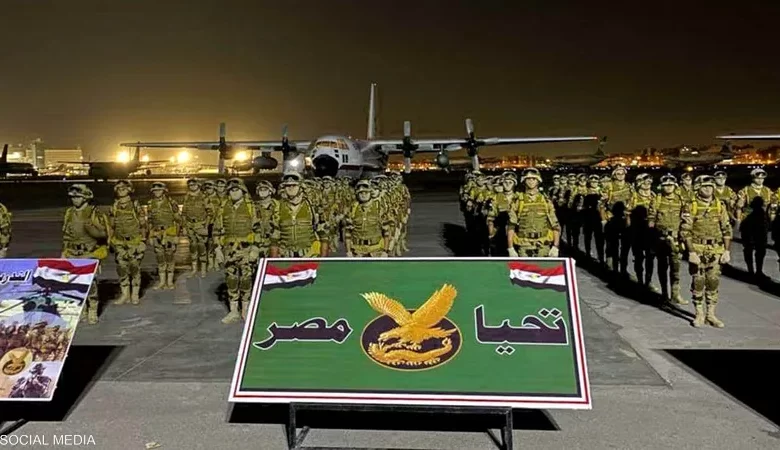Massive Military Maneuver in Egypt Amidst Regional Tensions

The Bright Star military exercise, involving 34 countries, comes as the Middle East and North Africa region faces various challenges due to armed conflicts in several arenas, leading to the growth of terrorism, organized crime, arms trafficking, and human smuggling.
The Bright Star military exercise began at a military base in western Egypt on Thursday. It is one of the largest exercises in the Middle East and the world, with the participation of 34 countries, including Saudi Arabia. This comes amidst several regional challenges, including Iranian threats, the consequences of Israeli escalation in Palestinian territories, the growing threat of terrorism, and organized crime, along with deteriorating security conditions in Libya, the Sahel region, and the African desert, as well as the increasing threats to maritime navigation by the Houthi rebels in the Red Sea.
Despite geopolitical developments in the region and Egypt’s joining of the BRICS economic group, which is considered a competitive system to Western systems serving Russian and Chinese influences, Egypt still remains within the Western camp, whether in terms of military exercises, political alignment, or economic interests.
The Egyptian army maintains its traditions established since the end of the Cold War, where it receives the majority of its military imports from Washington, which provides substantial assistance to the Egyptian armed forces, despite sometimes being subject to the political situation.
For Western powers or Gulf states, Egypt represents a fundamental pillar. President Abdel Fattah al-Sisi seeks to exploit this card economically and politically.
The Middle East and North Africa region faces many challenges due to armed conflicts in several arenas, whether in Yemen, the Red Sea, Sudan, the Sahel, or the African desert, resulting in the growth of terrorism, organized crime, arms trafficking, and human smuggling.
The Egyptian government’s federal prosecutor has announced that the Bright Star maneuver began on Thursday and will continue until September 14th, without providing further details.
In a related context, the Saudi Ministry of Defense announced through its “X” platform on Twitter on Thursday the completion of the arrival of its military units to Egypt to participate in the Bright Star 2023 exercise.
It has been confirmed that the “Bright Star” exercise aims to exchange expertise and coordinate joint operations among the participating forces from brotherly and friendly countries. This comes as Saudi Arabia enhances its military presence in the region after assuming command of two international coalitions in the Gulf.
The Saudi Press Agency reported on Thursday that the “Bright Star” exercise is being conducted with its maneuvers at the Mohammed Najib Military Base in western Egypt.
It quoted the Chief of Training for the Saudi Army, Adel Al-Bluwi, as saying that “the exercise aims to plan and execute counterterrorism and unconventional warfare operations, plan logistical support and medical evacuation operations, develop operational methods, and train in counterterrorism, and enhance maritime security.”
On Saturday, the Egyptian army announced the participation of 34 countries and 8,000 fighters in the same exercise.
The Egyptian source did not provide details at that time regarding the participating countries. However, a video clip published on its website highlighted the presence of flags from many countries, including the United States.
“Bright Star” is one of the largest multinational exercises in the world, held in Egypt. It includes naval, ground, and aerial exercises as well as special forces training.
These exercises began for the first time in October 1980, following the signing of the peace treaty between Egypt and Israel in 1979. They resumed in 1981 and have since been conducted every two years in the autumn. In 2018, Egypt hosted the “Bright Star” events with the participation of 9 countries, including the United States and the United Kingdom, and 16 other countries as observers, including Pakistan and India. In 2021, it involved 21 countries after being postponed in 2020 due to the COVID-19 pandemic.












